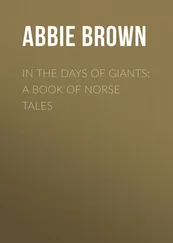Abbie Brown - The Book of Saints and Friendly Beasts
Здесь есть возможность читать онлайн «Abbie Brown - The Book of Saints and Friendly Beasts» — ознакомительный отрывок электронной книги совершенно бесплатно, а после прочтения отрывка купить полную версию. В некоторых случаях можно слушать аудио, скачать через торрент в формате fb2 и присутствует краткое содержание. Жанр: Природа и животные, foreign_antique, foreign_prose, на английском языке. Описание произведения, (предисловие) а так же отзывы посетителей доступны на портале библиотеки ЛибКат.
- Название:The Book of Saints and Friendly Beasts
- Автор:
- Жанр:
- Год:неизвестен
- ISBN:нет данных
- Рейтинг книги:3 / 5. Голосов: 1
-
Избранное:Добавить в избранное
- Отзывы:
-
Ваша оценка:
- 60
- 1
- 2
- 3
- 4
- 5
The Book of Saints and Friendly Beasts: краткое содержание, описание и аннотация
Предлагаем к чтению аннотацию, описание, краткое содержание или предисловие (зависит от того, что написал сам автор книги «The Book of Saints and Friendly Beasts»). Если вы не нашли необходимую информацию о книге — напишите в комментариях, мы постараемся отыскать её.
The Book of Saints and Friendly Beasts — читать онлайн ознакомительный отрывок
Ниже представлен текст книги, разбитый по страницам. Система сохранения места последней прочитанной страницы, позволяет с удобством читать онлайн бесплатно книгу «The Book of Saints and Friendly Beasts», без необходимости каждый раз заново искать на чём Вы остановились. Поставьте закладку, и сможете в любой момент перейти на страницу, на которой закончили чтение.
Интервал:
Закладка:
It was a sad time for Leo. He was growing thinner and thinner. His mane was rough and tangled because he had no heart to keep it smooth. And there were several white hairs in his beautiful whiskers. He was fast becoming melancholy; and the most pitiful beast in all the world is a melancholy lion. He had been hoping that something would happen to show that it was all a mistake; but it seemed as though the world was against him, and truth was dead.
It was a sad time for Gerasimus, too; for he still loved Leo, though he knew the lion must be punished for the dreadful deed which he was believed to have done. One day he had to go some distance to a neighboring town to buy provisions. As usual, he took Leo with him to bring back the burden, but they did not speak all the way. Gerasimus had done the errands which he had come to do, and was fastening the baskets on each side of the lion's back. A group of children were standing around watching the queer sight, – a lion burdened like a donkey! And they laughed and pointed their fingers at him, making fun of poor Leo.
But suddenly the lion growled and began to lash his tail, quivering like a cat ready to spring on a mouse. The children screamed and ran away, thinking that he was angry with them for teasing him. But it was not that. A train of camels was passing at the moment, and Leo had seen at their head a mean, wicked face which he remembered. And as the last of the caravan went by, Leo caught sight of Silly himself, the missing donkey of the monastery. At the sound of Leo's growl, Silly pricked up his ears and stood on his fore legs, which is not a graceful position for a donkey. Then the Camel Driver came running up to see what was the matter with his stolen donkey. But when he came face to face with Leo, whose yellow eyes were glaring terribly, the thief trembled and turned pale. For he remembered the dreadful roar which had followed him that day as he galloped away across the sand holding Silly's halter. The poor donkey was quivering with fear, thinking that this time he was surely going to be eaten piecemeal. But after all this trouble on Silly's account, the very idea of tasting donkey made Leo sick. He only wanted to show Gerasimus what a mistake had been made.
All this time Gerasimus had been wondering what the lion's strange behavior meant. But when he saw Leo seize the donkey's bridle, he began to suspect the truth. He ran up and examined the donkey carefully. Then Leo looked up in his face and growled softly, as if to say: —
"Here is your old donkey, safe and sound. You see I didn't eat him after all. That is the real thief," and turning to the Camel Driver, he showed his teeth and looked so fierce that the man hid behind a camel, crying, "Take away the lion! Kill the wicked lion!" But Gerasimus seized Silly by the bridle.
"This is my beast," he said, "and I shall lead him home with me. You stole him, Thief, and my noble lion has found you out," and he laid his hand tenderly on Leo's head.
"He is mine, you shall not have him!" cried the Camel Driver, dodging out from behind the camel, and trying to drag the donkey away from Gerasimus. But with a dreadful roar, Leo sprang upon him, and with his great paw knocked him down and sat upon his stomach.
"Do not hurt him, Leo," said Gerasimus gently. But to the Camel Driver he was very stern. "Look out, Sir Thief," he said, "how you steal again the donkey of an honest man. Even the yellow beasts of the desert know better than that, and will make you ashamed. Be thankful that you escape so easily."
Then he took the baskets from Leo's back and bound them upon Silly, who was glad to receive them once more from his own master's hands. For the Camel Driver had been cruel to him and had often beaten him. So he resolved never again to stray away as he had done that unlucky time. And when they were all ready to start, Gerasimus called Leo, and he got up from the chest of the Camel Driver, where he had been sitting all this time, washing his face with his paws and smiling.
"My poor old Leo!" said Gerasimus, with tears in his eyes, "I have made you suffer cruelly for a crime of which you were not guilty. But I will make it up to you."
Then happily the three set out for home, and all the way Gerasimus kept his arm about the neck of his lion, who was wild with joy because he and his dear master were friends once more, and the dreadful mistake was discovered.
They had a joyful reception at the monastery on the hill. Of course every one was glad to see poor Silly again; but best of all it was to know that their dear old lion was not a wicked murderer. They petted him and gave him so many good things to eat that he almost burst with fatness. They made him a soft bed, and all the monks took turns in scratching his chin for ten minutes at a time, which was what Leo loved better than anything else in the world.
And so he dwelt happily with the good monks, one of the most honored brothers of the monastery. Always together he and Gerasimus lived and slept and ate and took their walks. And at last after many, many years, they grew old together, and very tired and sleepy. So one night Gerasimus, who had become an Abbot, the head of the monastery, lay gently down to rest, and never woke up in the morning. But the great lion loved him so that when they laid Saint Gerasimus to sleep under a beautiful plane-tree in the garden, Leo lay down upon the mound moaning and grieving, and would not move. So his faithful heart broke that day, and he, too, slept forever by his dear master's side.
But this was not a sad thing that happened. For think how dreadful the days would have been for Leo without Gerasimus. And think how sad a life Gerasimus would have spent if Leo had left him first. Oh, no; it was not sad, but very, very beautiful that the dear Saint and his friendly beast could be happy together all the day, and when the long night came they could sleep together side by side in the garden.
SAINT KENETH OF THE GULLS
ONCE upon a time, more than a thousand years ago, a great white sea-gull was circling above the waves which roll between South England and Wales. He was pretending that he was doing this just for fun; and he seemed very lazy and dozy as he poised and floated without much trouble to move his wings. But really he was looking for a dinner, though he did not want any one to suspect it. And he hoped that some unwary fish would swim up near the surface of the water within diving reach of his great claws. His keen gray eyes were open all the while unsleepily, and not much that was going on down below on the water escaped his notice.
Suddenly his eye caught sight of a little black speck on the waves. "Aha!" he said to himself, "I think I see my dinner!" and with a great swoop down he pounced. You could hardly think how anything which looked so lazy and quiet could dart so like a flash of lightning. But a gull is an air-ship that can sink whenever it chooses. And when he gives a fish a sudden invitation to step in for dinner, the fish is hardly able to refuse.
But this was no fish which the hungry gull had spied. Before he reached the water he saw his mistake, and wheeling swiftly as only a gull can, he flapped back again into the air, uttering a screech of surprise.
"Cree-e-e!" he cried. "'Tis no scaly water-fish such as I like to eat. 'Tis one of those smooth land-fishes with yellow seaweed growing on its head. What is it doing here? I must see to this. Cree-e-e!"
No wonder the great bird circled and swooped curiously over the wicker basket which was floating on the waves. For on a piece of purple cloth lay a tiny pink-and-white baby, sound asleep, his yellow hair curling about the dimpled face, and one thumb thrust into the round red mouth.
"Well, well!" said the sea-gull to himself when he had examined the strange floating thing all he wished. "I must go and tell the others about this. Something must be done. There is a storm brewing, and this boat will not bear much rough weather. This little land-fish cannot swim. We must take care of him. Cree-e-e!" So off he flapped, and as he went he gave the family cry to call the gulls about him, wherever they might be.
Читать дальшеИнтервал:
Закладка:
Похожие книги на «The Book of Saints and Friendly Beasts»
Представляем Вашему вниманию похожие книги на «The Book of Saints and Friendly Beasts» списком для выбора. Мы отобрали схожую по названию и смыслу литературу в надежде предоставить читателям больше вариантов отыскать новые, интересные, ещё непрочитанные произведения.
Обсуждение, отзывы о книге «The Book of Saints and Friendly Beasts» и просто собственные мнения читателей. Оставьте ваши комментарии, напишите, что Вы думаете о произведении, его смысле или главных героях. Укажите что конкретно понравилось, а что нет, и почему Вы так считаете.












